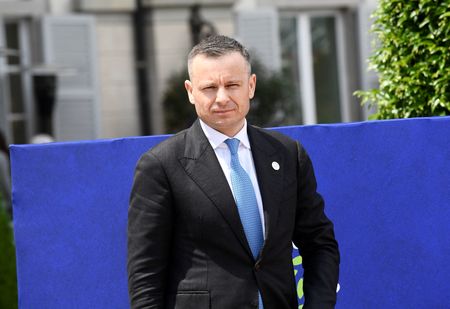By Stephanie Kelly
LONDON (Reuters) – Oil prices dropped on Friday as worries over fuel demand outweighed expectations that the year’s first interest rate cut by the U.S. Federal Reserve would trigger more consumption.
Brent crude futures were down 41 cents, or 0.6%, at $67.03 a barrel by 0855 GMT while U.S. West Texas Intermediate futures lost 54 cents, or 0.9%, to $63.03.
Both benchmarks were still on track for a second consecutive weekly gain.
The Fed cut its policy rate by a quarter of a percentage point on Wednesday and indicated that more cuts would follow as it responded to signs of weakness in the jobs market.
Lower borrowing costs typically boost demand for oil and push prices higher.
“The market has been caught between conflicting signals,” said Priyanka Sachdeva, an analyst at Phillip Nova.
On the demand side, all energy agencies, including the Energy Information Administration, have signalled concern about weakening demand, tempering expectations of significant near-term price upside, Sachdeva said.
“On the supply side, planned production increases from OPEC+ and signs of oversupply in U.S. fuel-product inventories are weighing on sentiment,” she added.
A higher than expected increase of 4 million barrels to U.S. distillate stockpiles raised worries over demand in the world’s top oil consumer and pressured prices. [EIA/S]
The latest economic data also added to concerns, with the U.S. jobs market softening while single-family homebuilding plunged to a multi-year low in August amid a glut of unsold new houses.
One factor holding back oil prices is an uneven economic recovery, particularly in the U.S., said PVM Oil Associates analyst Tamas Varga.
“The corporate sector is benefiting from ongoing deregulation, whereas consumers are beginning to feel the strain of import tariffs, with both the labour and housing markets showing signs of weakness,” he said.
In Russia, finance ministry plans to shield the state budget from oil price fluctuations and Western sanctions eased some supply concerns.
“President Trump’s comment that he preferred low prices over sanctions on Russia also eased concerns over supply disruptions,” ANZ analyst Daniel Hynes said in a note.
(Reporting by Stephanie Kelly; Additional reporting by Sudarshan Varadhan; Editing by David Goodman)











